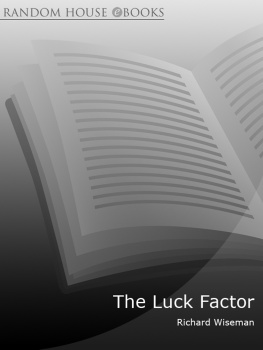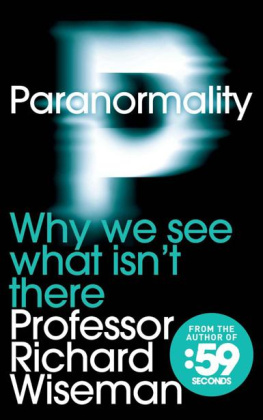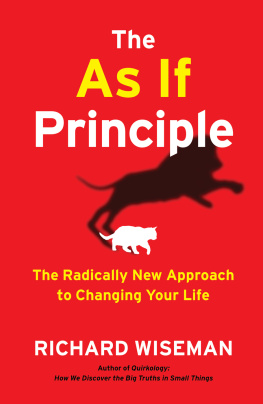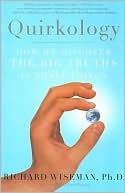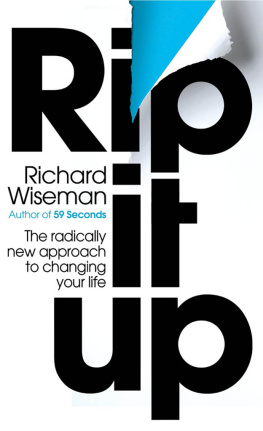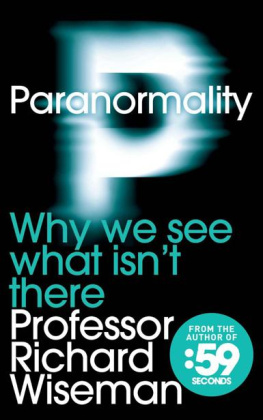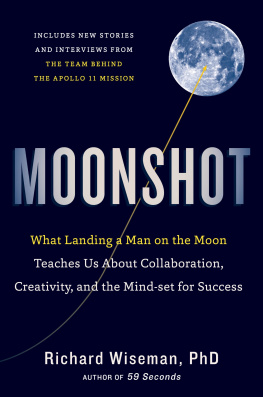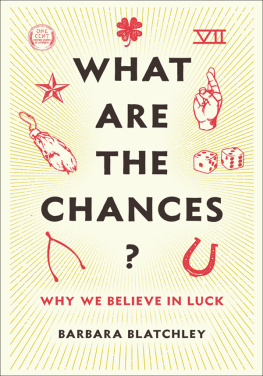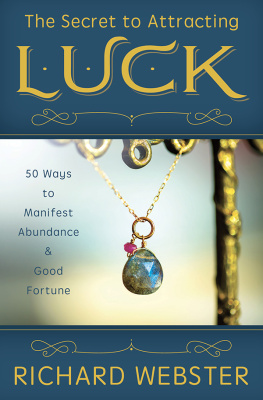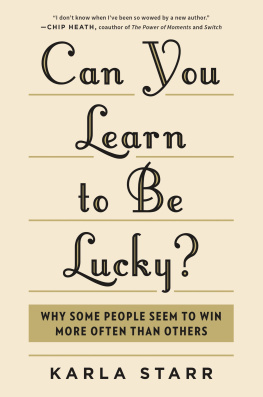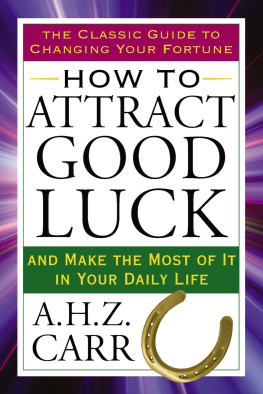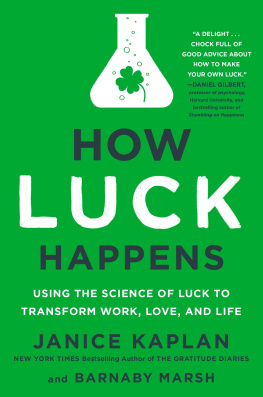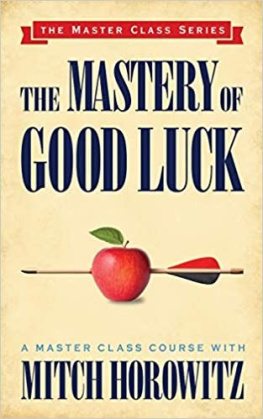The Luck Factor
Richard Wiseman

This ebook is copyright material and must not be copied, reproduced, transferred, distributed, leased, licensed or publicly performed or used in any way except as specifically permitted in writing by the publishers, as allowed under the terms and conditions under which it was purchased or as strictly permitted by applicable copyright law. Any unauthorized distribution or use of this text may be a direct infringement of the authors and publishers rights and those responsible may be liable in law accordingly.
Epub ISBN 9781446440759
Version 1.0
Published by Arrow Books 2004
7 9 10 8
Copyright Richard Wiseman 2003
Richard Wiseman has asserted his right under the Copyright, Designs and Patents Act, 1988, to be identified as the author of this work.
First published in Great Britain in 2003 by Century
Arrow Books
The Random House Group Limited
20 Vauxhall Bridge Road, London, SW1V 2SA
www.randomhouse.co.uk

Arrow Books is part of the Penguin Random House group of companies whose addresses can be found at
global.penguinrandomhouse.com
The Random House Group Limited Reg. No. 954009
A CIP catalogue record for this book is available from the British Library
ISBN 9780099443247
Contents
About the Book
The revolutionary book that reveals the four scientific principles of luck and how you can use them to change your life.
For over ten years, psychologist Professor Richard Wiseman has been conducting a unique research project, examining the behaviour of over a thousand volunteers who considered themselves lucky or unlucky. The results reveal a radical new way of looking at luck:
- You hold the key to creating your luck
- There are four simple behavioural techniques that are scientifically proven to help you attract good fortune
- You can use these principles to revolutionise every area of your life including your relationships, personal finances and career
For the first time, the elusive luck factor has been identified. Using the simple techniques described in this book, you can learn how to increase your levels of luck, confidence and success.
About the Author
Professor Richard Wiseman began his working life as an award-winning professional musician and was one of the youngest members of The Magic Circle. He obtained a first class honours degree in Psychology from University College London, a doctorate in Psychology from Edinburgh University, and was awarded the prestigious Perrott-Warwick Scholarship from Trinity College Cambridge. He now heads a research unit based within the Psychology Department at the University of Hertfordshire.
Professor Wisemans research has been widely reported in many of the worlds leading science journals, and he has presented his findings at many national and international academic conferences.
He has featured on hundreds of radio and television programmes, and feature articles about his work have appeared in The Times, the Daily Telegraph and the Guardian. He has also devised several large-scale experiments involving thousands of people. Many of these have been carried out in collaboration with the Daily Telegraph and the BBC science programme Tomorrows World.
Also by Richard Wiseman
Magic in Theory
Did You Spot the Gorilla?
The Little Book of Luck
Parapsychology
Quickology
59 Seconds: Think a Little, Change a Lot
To Caroline
If an unlucky man sold umbrellas, it would stop raining; if he sold candles, the sun would never set; and if he made coffins, people would stop dying.
Yiddish saying
Throw a lucky man in the sea and he will come up with a fish in his mouth.
Arab proverb
ACKNOWLEDGEMENTS
I would like to thank the following people for their help in conducting the research described here and in writing this book: Dr Caroline Watt, Dr Matthew Smith, Dr Peter Harris, Dr Emma Greening, Dr Wendy Middleton, Clive Jeffries, and Helen Large. I am also grateful to the various organisations that helped fund and support this work: the Leverhulme Trust, the University of Hertfordshire, and the BBC. This book would not have been possible without the guidance and expertise of my agent Patrick Walsh, and editors Kate Parkin, Anna Cherrett and Jonathan Burnham. Finally, my special thanks to the hundreds of lucky and unlucky people who were kind enough to participate in my research, and share their fascinating life experiences.
Introduction
Lucky people meet their perfect partners, achieve their lifelong ambitions, find fulfilling careers, and live happy and meaningful lives. Their success is not due to them working especially hard, being amazingly talented or exceptionally intelligent. Instead, they appear to have an uncanny ability to be in the right place at the right time and enjoy more than their fair share of lucky breaks. This book describes the first scientific study into why lucky people live such charmed lives, and offers ideas for how others can enhance their own good fortune.
The research took several years to complete, and involved interviews and experiments with hundreds of exceptionally lucky and unlucky people. The results reveal a radically new way of looking at luck and the vital role that it plays in our lives. People are not born lucky. Instead, lucky people are, without realising it, using four basic principles to create good fortune in their lives. Understand the principles and you understand luck itself. More importantly, these principles can be used to enhance the amount of good luck that you experience in your life.
In short, this book presents that most elusive of holy grails a scientifically proven way to understand, control and increase your luck.
Beginners luck
I have always had a lifelong interest in the remarkable. When I was a child, I became fascinated with magic and illusion. By the time I was ten, I could make handkerchiefs vanish into thin air and thoroughly shuffle a deck of cards without altering their order. In my early teens I joined one of the worlds best-known magic societies The Magic Circle in London. By my early twenties I had been invited to America to perform several times at the prestigious Magic Castle in Hollywood.
I quickly discovered that to be a successful magician you need to understand a great deal about what is going on inside other peoples heads. Good magicians know how to distract other peoples attention, how to avoid making an audience suspicious, and how to prevent them from working out the correct solution to the trick. As time went on, I became more and more interested in the psychological principles that lay behind the performance of conjuring. This eventually led me to enrol for a degree in psychology at University College London, and I later studied for my doctorate in psychology at the University of Edinburgh. After Edinburgh, I established my own research unit at the University of Hertfordshire.
At this unit we have carried out scientific research into a wide range of psychological phenomena. Perhaps because of my background in magic, I have directed the team to examine areas of psychology that are somewhat unusual.

